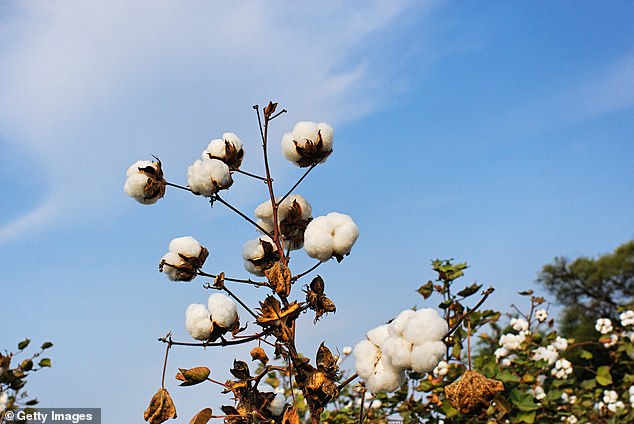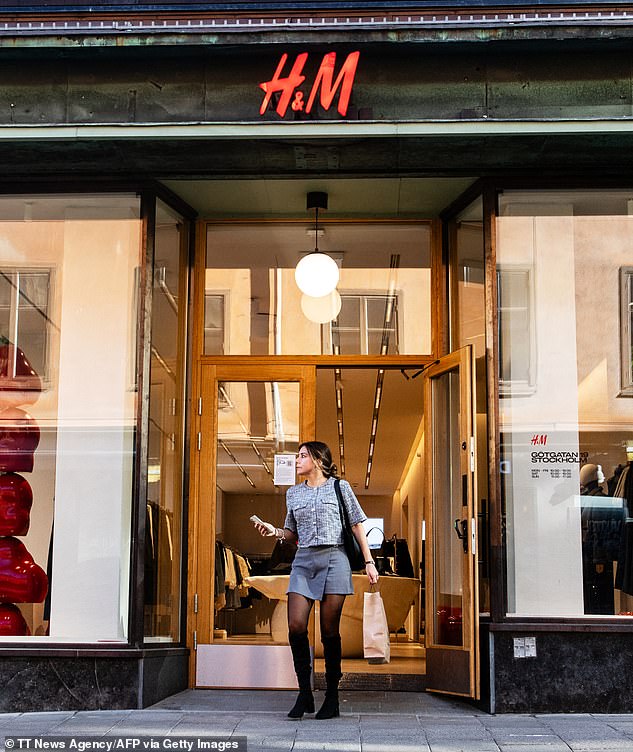Cotton branded as “ethically produced” and sold in popular high street shops could be linked to farms employing child slave laborers in India, according to a new report.
The investigation by transparentconducted between June 2022 and March 2023, found the “worst forms of child labor,” meaning “likely to harm the health, safety or morals of children” and “all forms of slavery or practices similar to slavery” on cotton farms. in the state of Madhya Pradesh.
The violations occurred at farms linked to two major suppliers, Remei India and Pratibha Syntex, one of the largest clothing manufacturers in the Asian country, which provides materials for brands such as H&M, Amazon and Columbia.
Pratibha Syntex, founded in 1997, calls itself a “sustainable” manufacturer online, implementing “organic farming practices” and “priding itself on fostering an inclusive and empowering work environment.”
The report also alleges that investigators found cases of wages below the state minimum, abusive working conditions and abuse of vulnerability. This is often defined as exploiting people’s vulnerabilities to force them to perform a job or service.
Exposure to pesticides on farms is also harmful to children and, according to research, is linked to chronic health problems in children, such as cancer.
Both Pratibha Syntex and Remei India have due diligence systems in place, allowing some visibility to prevent cases of harm; Transparentem calls on companies to take a more refined approach.
Child labor is a complex issue in India; Impoverished communities in rural areas face a lack of opportunities, which increases pressure for children to work and therefore minimizes educational opportunities, leading to a cycle of low income and exploitation, he explained. Transparentem.
Cotton farms that supply several high street stores, including H&M (pictured in a file image), have cases of child labor, despite being branded as “organic”, according to new research.
Transparentem, which campaigns to end abuse in global supply chains, said that although they linked the investigated farms to the company’s supply chains, it does not indicate that cotton from these farms was used in specific products from the suppliers. or buyers.
Pratibha Syntex told Transparentem that it recognizes that problems may exist and is committed to transparency and continuous improvement of its systems.
Remei India, Remei AG and its buyers told Transparentem that it will conduct a comprehensive study of registered cotton farms in Madhya Pradesh to better understand the experiences of workers and farm owners.
MailOnline has contacted Pratibha Syntex and Remei Aktiengesellschaft for comment.
Transparentem also reported that some buyers responded and sought to establish more ethical ways of sourcing materials, while others did not respond at all.
The watchdog has urged all buyers and suppliers to establish a tracking system and define clear plans to create ethical working conditions for farmers in Madhya Pradesh.

Transparentem carried out an investigation between June 2022 and March 2023 and found the “worst forms of child labor” on cotton farms in the Indian state of Madhya Pradesh (pictured: Archive image of a cotton farm in the India)
It is understood that the H&M group stopped sourcing from Pratibha Syntex about a year ago due to changing trade demands.
The H&M Group also owns major brands such as Cos, Weekday, Cheap Monday, Monki, &OtherStories and Arket.
According to the investigation, it is unclear whether Amazon and Columbia allegedly continued doing business with suppliers.
An H&M Group spokesperson said: ‘Child and forced labor is unacceptable. Any hint of this in our supply chain is treated very seriously and for many years we have been working systematically to address the risks.
‘The findings shared by Transparentem in their research are deeply concerning and are something that all brands working with global supply chains must address together.
“Together with other brands and the Fair Labor Association, we are involved in a multi-stakeholder collaborative project to improve the living and working conditions of cotton farmers and workers in two districts of Madhya Pradesh, India.”
MailOnline has turned to H&M Group, Amazon and Columbia for comment.
It comes after Shein revealed it discovered two cases of child labor in its supply chain in August last year.
Scrutiny on the company was increasing as it approached its £50bn market debut on the London Stock Exchange.
It made a profit of £1.5bn in 2022, but its ultra-cheap prices, including £5 dresses, have attracted attention.
After earlier criticism for mistreating workers, Shein insisted that controls in factories have been increased and that action is taken against unreliable suppliers.
In a sustainability report published in August last year, it said there were two cases of child labor in 2022.
Both cases were “resolved quickly”, with the company saying it took steps to terminate the children’s contracts, pay outstanding wages and arrange medical checks.
Manufacturers were able to resume work after reinforcing identification checks on new staff following incidents that occurred between January and September of that year.
However, the company insisted that stricter rules now meant that any cases of child labor or forced labor were grounds for immediate termination of contracts.
Shein, founded in China and now based in Singapore, has been criticized for using suppliers who exploit low-paid workers in China to sell its clothes at bargain prices and, by shipping directly from Asia to online buyers, avoids customs duties.
The British Fashion Council has expressed concern about the plans amid concerns that Shein will use unethical practices to undercut other retailers.
The company plans to increase the amount of clothing made in Türkiye, a move it hopes will reduce criticism.
The backlash in the United States, including from industry group the National Retail Federation, was one of the reasons Shein abandoned its original plans to list in New York.
It also faced opposition from Florida Sen. Marco Rubio, in part over claims that it has used cotton sourced from forced labor in China’s Xinjiang region. Shein insisted it has a “zero tolerance policy for forced labor.”
A May report by the advocacy group Public Eye found that some workers endure 75-hour weeks.
In the UK, Shein hired top PR firms and joined the British Retail Consortium in a bid to win over the business community.
Founded in 2012, Shein has enjoyed an explosion of popularity thanks to younger, budget-conscious shoppers in 150 countries, using what it describes as a unique business model and efficient supply chain to keep prices low.


